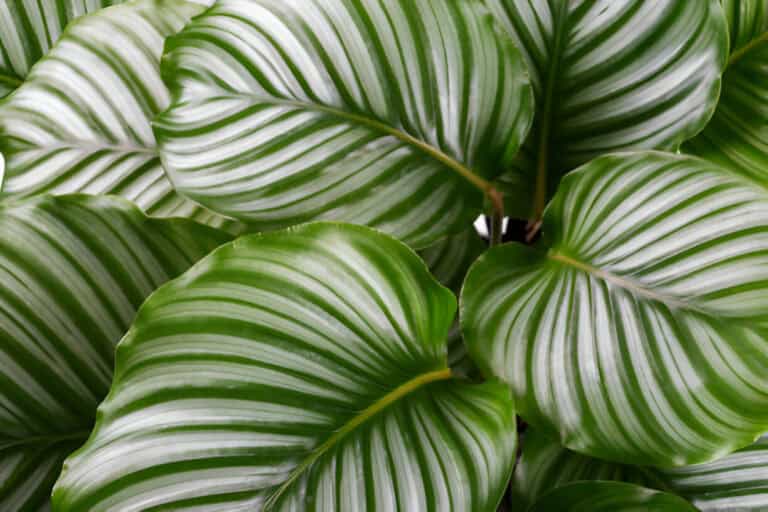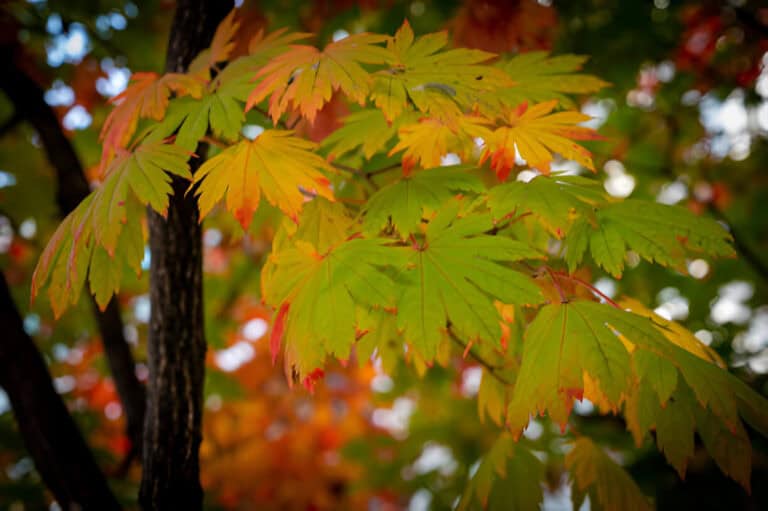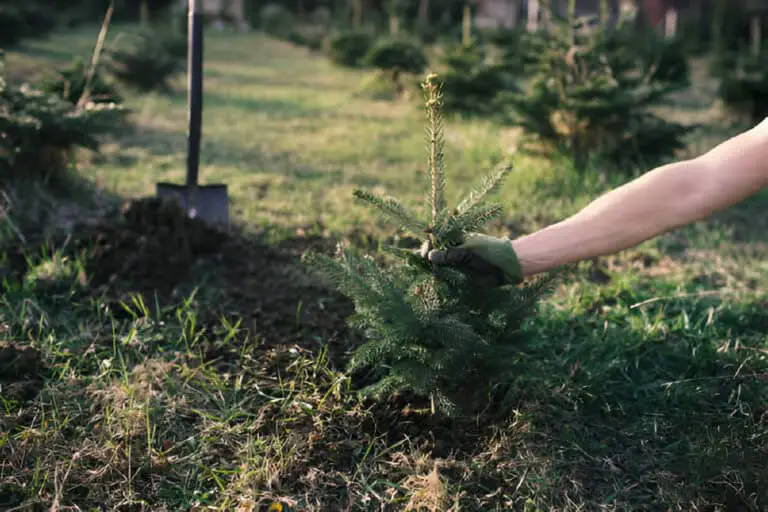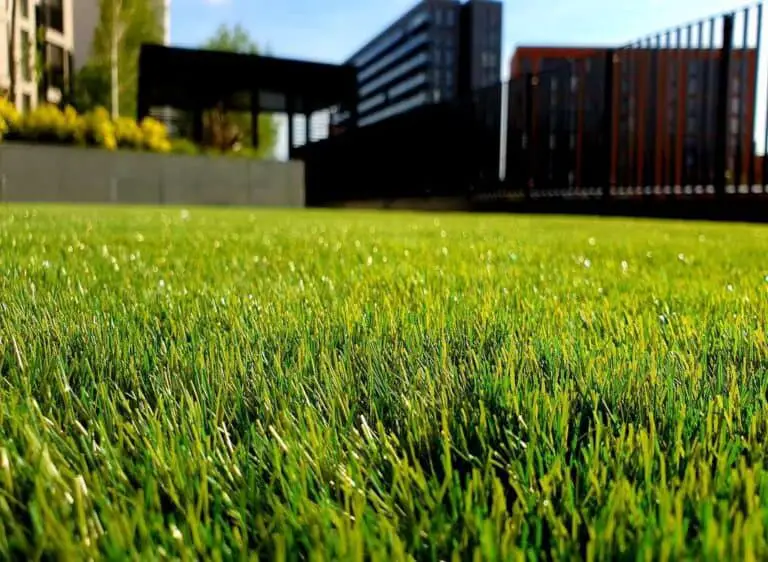Are Black Spots on Brussels Sprouts Safe to Eat? The Answer May Surprise You
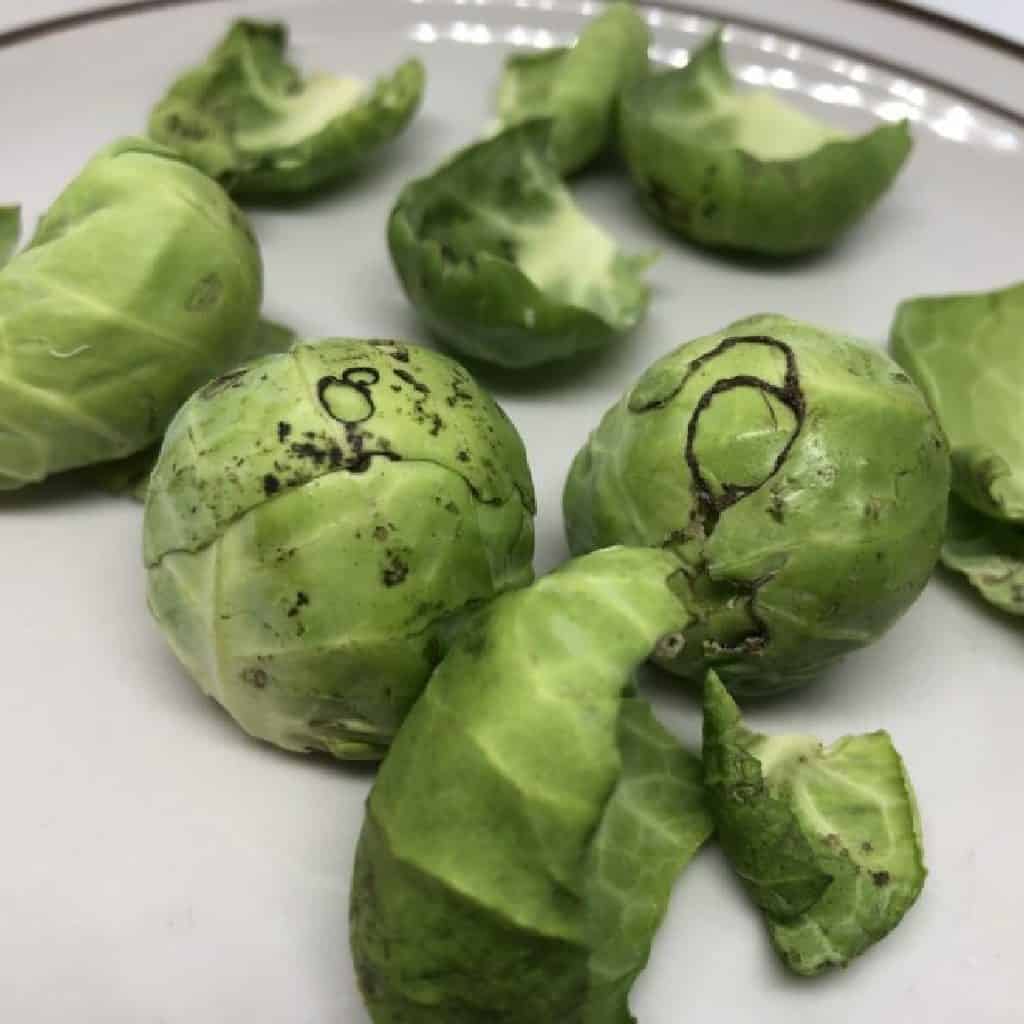
Brussels sprouts are a delicious and nutritious vegetable that can be prepared in a variety of ways, from roasted to sautéed to steamed. However, if you’ve ever noticed black spots on your Brussels sprouts, you may be wondering if they’re safe to eat and how to prevent them from occurring in the future.
In this article, we’ll explore what black spots on Brussels sprouts are, their causes, and what you can do to prevent them. We’ll also discuss whether it’s safe to eat Brussels sprouts with black spots and provide some tasty recipes to try.
We’ll also provide tips on how to properly inspect, store, and cook your Brussels sprouts to ensure that they’re both delicious and safe for consumption. So, if you’re a Brussels sprouts fan or just curious about this nutrient-packed vegetable, keep reading to learn more!
What Are Black Spots on Brussels Sprouts?
Black spots on Brussels sprouts are small, dark spots that can appear on the leaves or outer layers of the vegetable. They result from a variety of things, such as insects, illness, and environmental stressors. While they may look unappetizing, black spots on Brussels sprouts are usually harmless and can be removed before cooking.
Causes of Black Spots on Brussels Sprouts
There are several factors that can cause black spots on Brussels sprouts, including:
- Insects: Common insect pests that can cause black spots on Brussels sprouts include aphids, cabbage worms, and flea beetles. These insects feed on the leaves of the plant and can cause damage that leads to black spots.
- Disease: Fungal diseases such as black rot and Alternaria leaf spot can cause black spots on Brussels sprouts. These diseases thrive in warm, humid conditions and can spread rapidly if not controlled.
- Environmental stressors: Extreme heat or cold, drought, and other environmental stressors can cause black spots on Brussels sprouts. These stressors can weaken the plant and make it more susceptible to damage from insects and disease.
Are Black Spots on Brussels Sprouts Safe to Eat?
It is not uncommon to notice black spots on Brussels sprouts when you are preparing them for cooking. This can raise concerns about the safety of the vegetable, leaving you wondering if it is still safe to consume.
The good news is that black spots on Brussels sprouts are generally safe to eat. These spots are caused by a variety of factors, including insect damage, disease, or exposure to cold temperatures. While they can affect the appearance of the vegetable, they are usually not harmful to your health.
That said, it is still important to inspect your Brussels sprouts carefully before consuming them. If you notice any signs of mold or rot, or if the spots appear to be spreading, it is best to discard the vegetable. In addition, if you have a weakened immune system or are otherwise at a higher risk of foodborne illness, it is important to take extra precautions and avoid consuming any vegetables that appear to be damaged or spoiled.
When preparing Brussels sprouts, it is a good idea to wash them thoroughly and trim away any damaged or discolored portions. This will help to remove any dirt, bacteria, or other contaminants that may be present on the vegetable. By taking these simple steps, you can enjoy the many health benefits of Brussels sprouts while ensuring that you are consuming them safely and responsibly.
Effects of Eating Bad Brussels Sprouts
If you accidentally eat bad Brussels sprouts, you may experience some unpleasant side effects. Here are a few things that can happen:
Food Poisoning
If your Brussels sprouts are contaminated with harmful bacteria like E. coli or Salmonella, you could experience food poisoning. Symptoms of food poisoning include:
- Nausea
- Vomiting
- Diarrhea
- Abdominal pain
- Fever
If you experience any of these symptoms after eating Brussels sprouts, it’s important to seek medical attention right away.
Upset Stomach
Eating bad Brussels sprouts can also cause an upset stomach. You may experience bloating, gas, and abdominal discomfort. These symptoms are usually mild and should go away on their own within a few hours.
Allergic Reactions
Some people may be allergic to Brussels sprouts or develop an allergy after eating them. Symptoms of a Brussels sprouts allergy include:
- Hives or rash
- Swelling of the lips, tongue, or throat
- Difficulty breathing
- Anaphylaxis (a life-threatening reaction)
If you experience any of these symptoms after eating Brussels sprouts, seek medical attention right away.
How to Prevent Black Spots on Brussels Sprouts
There are several things you can do to prevent black spots from forming on your Brussels sprouts:
- Inspect your plants regularly: Check your Brussels sprouts plants for signs of insect damage or disease regularly. If you notice any problems, take action immediately to prevent further damage.
- Control insect pests: Use insecticidal soap or neem oil to control common insect pests such as aphids and cabbage worms.
- Practice crop rotation: Avoid planting Brussels sprouts in the same location year after year, as this can increase the risk of disease.
- Provide proper care: Make sure your Brussels sprouts plants are getting enough water and nutrients to stay healthy and strong. Avoid overwatering or underwatering, as this can stress the plants and make them more susceptible to damage.
- Harvest promptly: Harvest your Brussels sprouts promptly when they’re ready, as leaving them on the plant too long can increase the risk of disease and insect damage.
How to Remove Black Spots from Brussels Sprouts
If you do notice black spots on your Brussels sprouts, don’t worry; they can be removed easily before cooking. Here’s how:
- Cut off the affected portions of the Brussels sprouts using a sharp knife or scissors.
- Rinse the Brussels sprouts thoroughly under running water to remove any remaining debris.
- Use as desired in your favorite recipe.
Recipes for Cooking Brussels Sprouts with Black Spots
If you’re looking for ways to cook Brussels sprouts with black spots, there are plenty of delicious recipes to try. Here are a few ideas:
Roasted Brussels Sprouts with Balsamic Glaze
Ingredients:
- 1 lb Brussels sprouts, trimmed and halved
- 2 tbsp olive oil
- Salt and pepper, to taste
- 1/4 cup balsamic vinegar
- 1 tbsp honey
Instructions:
- Preheat the oven to 400°F.
- In a large bowl, toss the Brussels sprouts with olive oil, salt, and pepper.
- Spread the Brussels sprouts in a single layer on a baking sheet.
- Roast for 20-25 minutes, or until tender and lightly browned.
- In a small saucepan, whisk together the balsamic vinegar and honey. Bring to a simmer over medium heat and cook for 5-7 minutes, or until thickened.
- Drizzle the balsamic glaze over the roasted Brussels sprouts and serve.
Brussels Sprouts and Bacon Gratin
Ingredients:
- 1 lb Brussels sprouts, trimmed and halved
- 4 strips bacon, diced
- 1/4 cup all-purpose flour
- 2 cups whole milk
- 1 cup grated cheddar cheese
- Salt and pepper, to taste
Instructions:
- Preheat the oven to 375°F.
- In a large skillet, cook the bacon over medium heat until crispy. Remove with a slotted spoon and set aside.
- Add the Brussels sprouts to the skillet and cook for 5-7 minutes, or until lightly browned.
- In a separate saucepan, whisk together the flour and milk. Cook over medium heat, whisking constantly, until the mixture thickens.
- Add the grated cheese to the saucepan and stir until melted and smooth.
- Season the cheese sauce with salt and pepper to taste.
- Combine the Brussels sprouts and bacon in a 9×13-inch baking dish. Pour the cheese sauce over the top.
- Bake for 20-25 minutes, or until the gratin is hot and bubbly.
Brussels Sprouts Salad with Apples and Walnuts
Ingredients:
- 1 lb Brussels sprouts, trimmed and thinly sliced
- 1 Granny Smith apple, cored and thinly sliced
- 1/2 cup chopped walnuts
- 1/4 cup olive oil
- 2 tbsp apple cider vinegar
- 1 tbsp Dijon mustard
- 1 tbsp honey
- Salt and pepper, to taste
Instructions:
- In a large bowl, toss together the sliced Brussels sprouts, apple slices, and chopped walnuts.
- In a separate bowl, whisk together the olive oil, apple cider vinegar, Dijon mustard, and honey until smooth.
- Pour the dressing over the Brussels sprout mixture and toss to coat.
- Season the salad with salt and pepper to taste.
When to Discard Brussels Sprouts with Black Spots
While black spots on Brussels sprouts are usually harmless and can be removed before cooking, there may be cases where you need to discard the entire vegetable. If the Brussels sprouts are heavily damaged, discolored, or have a foul odor, it’s best to err on the side of caution and throw them away. Additionally, if you’re unsure whether your Brussels sprouts are safe to eat, it’s always better to be safe than sorry and discard them.
Final Thoughts
In conclusion, black spots on Brussels sprouts may look unappetizing, but they’re usually harmless and can be easily removed before cooking. By taking steps to properly store your Brussels sprouts, inspecting them before use, and cooking them thoroughly, you can ensure that your meals are both delicious and safe to eat. Whether you prefer them roasted, grilled, sautéed, or raw, Brussels sprouts are a versatile and nutritious addition to any meal. So next time you spot those pesky black spots, don’t fret—just follow these tips and get cooking!
As with any food safety concern, it’s important to use your best judgment and err on the side of caution. If you’re unsure about the safety of your Brussels sprouts, or if they’re heavily damaged or discolored, it’s best to discard them. By following these tips and using common sense, you can enjoy delicious and healthy Brussels sprouts with confidence.
And remember, don’t let a few black spots scare you away from this nutrient-packed vegetable. Brussels sprouts are a great source of fiber, vitamins, and minerals, and can be prepared in a variety of ways to suit your taste buds. So go ahead and give them a try – your body will thank you!

